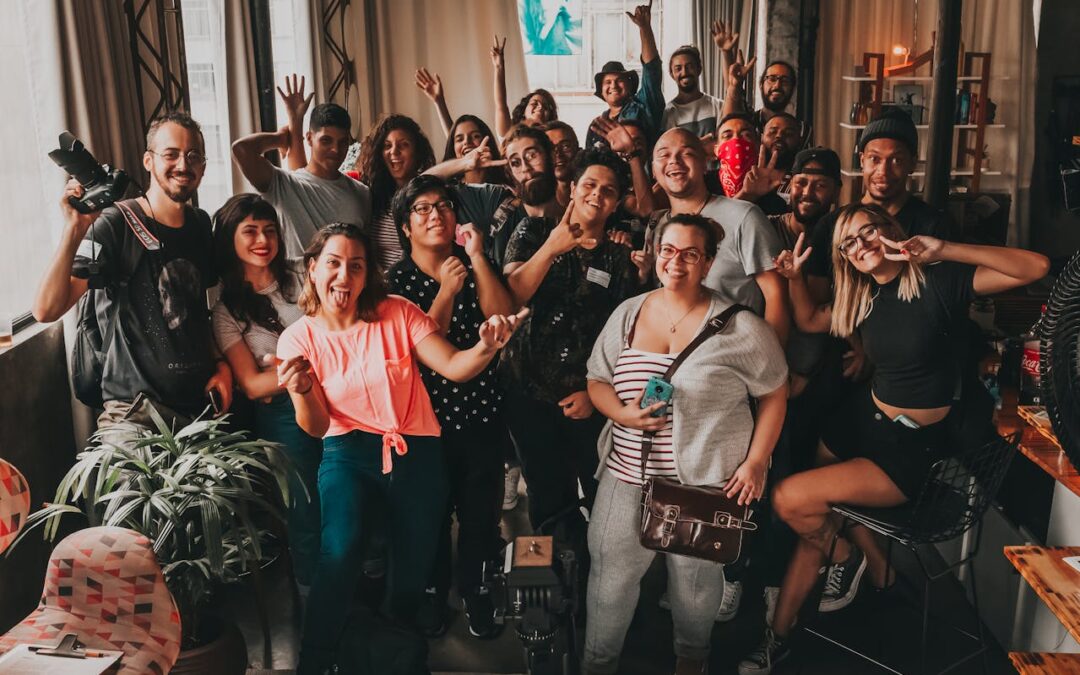
Why Purpose and Human Connection Are the True Engines of Growth
Why Purpose and Human Connection Are the True Engines of Growth
True connection is the ultimate differentiator in business. And when it comes to building community and trust, few leaders embody this philosophy more authentically than Richard Huffman, founder and CEO of Celebree School and Huffman Family Brands.
On this episode of The Bliss Business Podcast, hosts Stephen Sakach and Mike Liwski sat down with Richard to explore the powerful role that community, authenticity, and purpose play in creating sustainable business success. What emerged was a candid conversation about leading with heart, growing people, and building businesses that change lives — not just bottom lines.
The DNA of Community
From the very beginning, Richard understood that Celebree wasn’t just about providing early childhood education. It was about creating spaces of trust, empathy, and human connection — both for the children they serve and the franchise partners, educators, and families they collaborate with.
“Community is all about relationships,” Richard shared. “As a CEO, one of my biggest responsibilities is creating open doors — connections that are genuine, lasting, and based on shared values.”
He explained that building strong relationships with franchise partners, philanthropy networks, local business leaders, political stakeholders, and executive teams is not just a strategy — it’s the heartbeat of the organization.
And the results speak for themselves: Celebree School has grown to over 60 locations across 17 states, caring for more than 7,500 children and empowering hundreds of franchise owners and educators along the way.
Purpose That Powers Growth
At the core of Celebree’s mission is a simple but transformative mantra: Grow People Big and Small.
This philosophy — woven into every level of the organization — creates a ripple effect. From cultivating entrepreneurship in franchise partners to nurturing professional development in teachers, and empowering young children to hit key developmental milestones, “growth” is not just a buzzword; it’s a lived experience.
Richard emphasized how critical it is to align purpose with action:
“People don’t just want jobs anymore — they want to be part of something meaningful. Having a clear, heartfelt purpose helps you attract the right people, keep them motivated, and create lasting impact.”
He shared how every team member at Celebree has an Individual Growth Plan (IGP) that focuses not only on career goals but also on personal life goals — recognizing that human flourishing goes beyond the workplace.
Philanthropy Rooted in Authenticity
Beyond business growth, Richard has infused a deep commitment to philanthropy across Celebree’s culture. What started with a single request from a parent in need evolved into an organizational dedication to causes like the Ronald McDonald House and local children’s hospitals across every community they serve.
Importantly, Richard stressed that authenticity cannot be faked. “If your values don’t align, you can’t force it. Real relationships — and real impact — come from being truly committed to the cause.”
The Power of Storytelling and Emotional Connection
Throughout the conversation, Richard highlighted the importance of storytelling in building community and brand loyalty. It’s not about polished marketing campaigns — it’s about showing the human side of leadership and creating emotional resonance.
As he put it, “People want to know who’s behind the brand they’re trusting. They want to see that you’re real, that you care, and that your story aligns with theirs.”
This authenticity has helped Celebree stand out in a crowded market — and it’s a key reason why the brand has such strong customer and employee loyalty.
Final Reflections: Leading with Compassion and Patience
When asked about the greatest leadership lessons he’s learned, Richard’s answer was simple but profound: patience and compassion.
“Not everyone sees the world the way you do — and that’s a good thing,” he said. “Leadership is about creating the conditions for people to thrive, not expecting them to be clones of yourself.”
Ultimately, Richard’s journey reminds us that true success isn’t just measured in revenue or expansion. It’s measured in lives touched, people empowered, and communities uplifted.
What We Learned from Richard Huffman:
- Building community starts with authentic relationships, not transactions.
- Purpose must be actionable — and woven into every level of the organization.
- Philanthropy isn’t a marketing tactic; it’s an extension of your values.
- Storytelling and emotional connection build lasting brand loyalty.
- Leadership requires compassion, patience, and a commitment to growing others.
Check out our full conversation with Richie Huffman on The Bliss Business Podcast.
Originally Featured on The Bliss Business Podcast Blog










Recent Comments